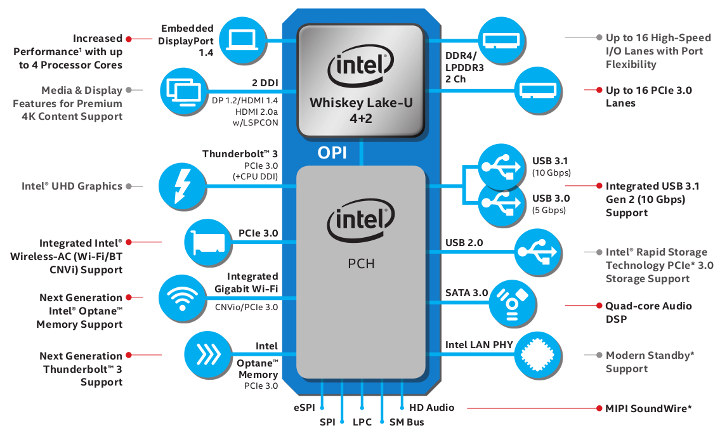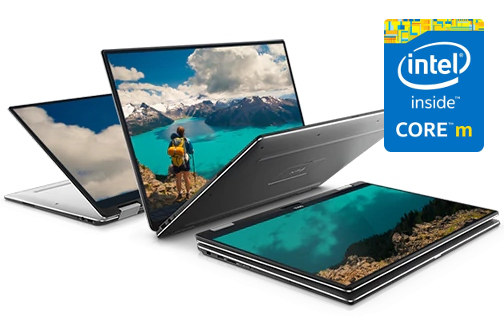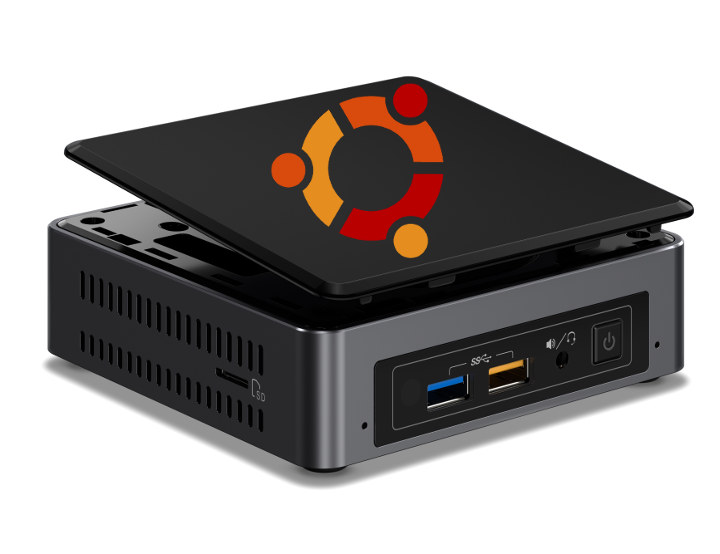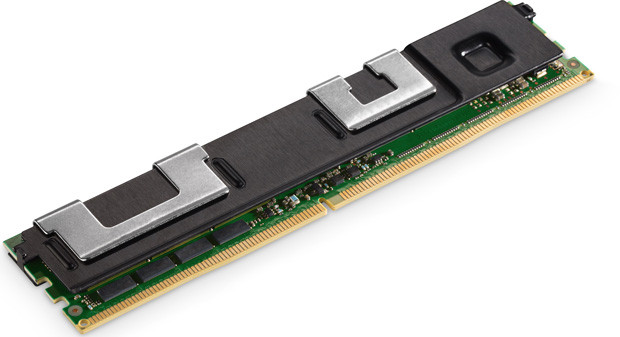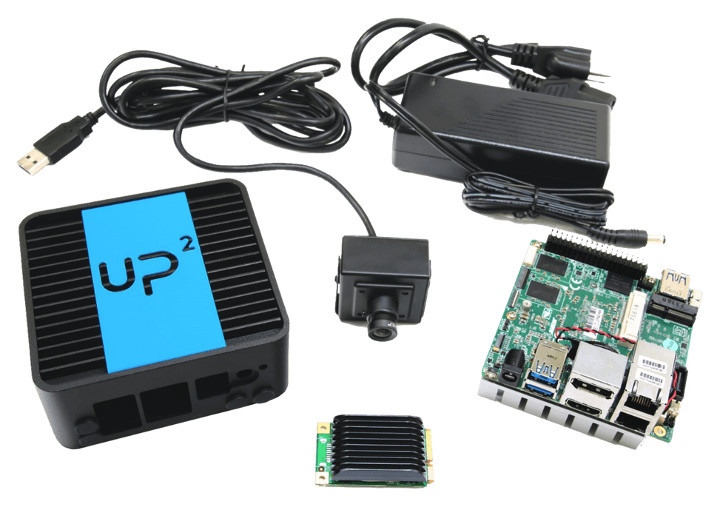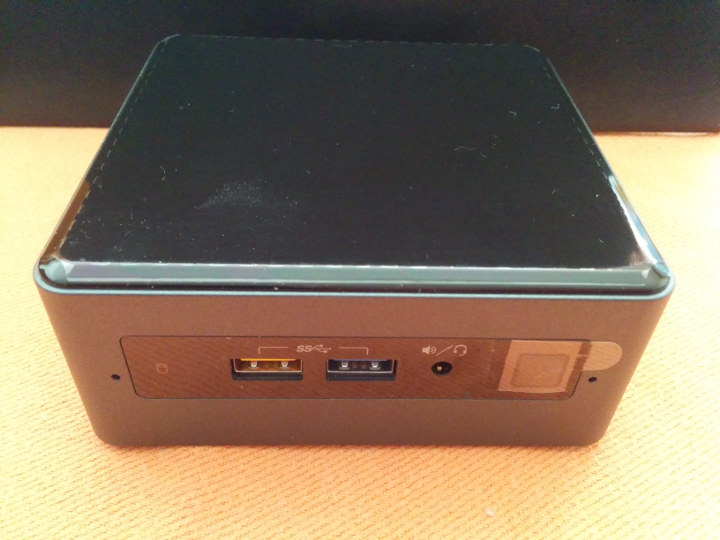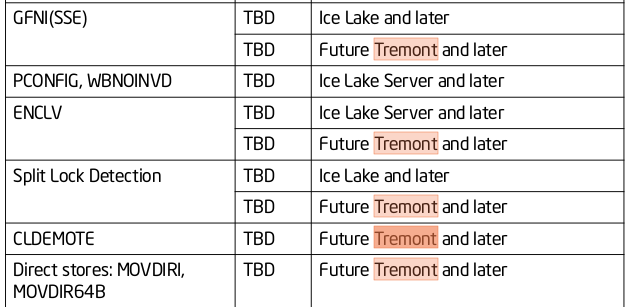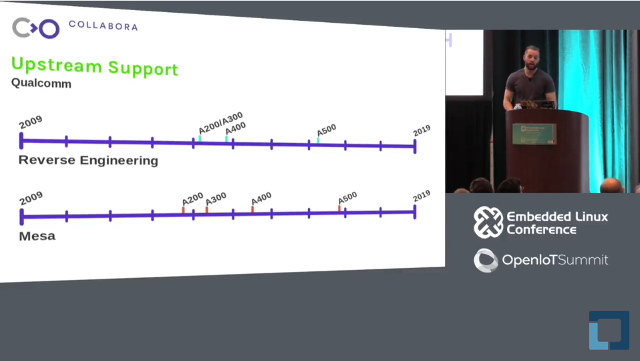We discovered three Intel Amber Lake processors with a 5W TDP through a leak last month namely Core m3-8100Y, Core i5-8200Y, Core i7-8500Y dual core/quad thread processors. Intel has now made an announcement confirming the launch of Core Y-series (formerly Amber Lake, 5W TDP) and Core U-Series (Whiskey Lake, 15W TDP) 8th generation processors featuring Gigabit WiFi, optional support for LTE and targeting laptop and 2-in-1 hybrids. Intel Core Y-Series “Amber Lake” Processors Let’s start with the 5W Core-Y family key features: 4MB Smart Cache Intel HD Graphics 615 Intel High Definition Audio with digital surround sound, support for multiple audio streams, jack re-tasking. Intel Smart Sound Technology – Dedicated audio Digital Signal Processor designed to process audio for media playback and voice for PC interactions like Cortana, Nuance Dragon, or Skype. USB 3.0 – Up to 5x USB 3.0 ports supporting up to 5 Gbps USB 2.0 – Up […]
Three 5W Intel Amber Lake Processors Coming Soon: Core m3-8100Y, Core i5-8200Y, Core i7-8500Y
When I talk about low power Intel processors, I usually think about atom-based families like Bay Trail, Cherry Trail, Apollo Lake or Gemini Lake with 2W to 10W processors that delivers entry-level performance at a reasonable price. But Intel has also been selling more powerful Core-m processors with a similar power budget, but with much better performance, at the cost of a significantly higher price tag. The company is now prepping to launch a new family of such processor with Amber Lake Y-series (aka Amber Lake-Y) family. Three Amber Lake processors are expected to be officially announced very soon: Core m3-8100Y dual core/quad thread processor @ 1.1 GHz (base) / 3.4 GHz (turbo) Core i5-8200Y dual core/quad thread processor @ 1.3 GHz (base) / 3.9 GHz (turbo) Core i7-8500Y dual core/quad thread processor @ 1.5 GHz (base) / 4.2 GHz (turbo) All three processors are manufactured with a 14 nm […]
Canonical Releases Ubuntu 16.04 LTS Certified for Intel NUC
In the x86 world, the theory is that you can take a single Linux distro image should work on any x86 compatible hardware. But for Atom-class processors however, including Bay Trail, Cherry Trail, Apollo Lake and Gemini Lake it has not always been the case, especially with features like audio output, Bluetooth, touchpad, and others. That’s why for example, Linuxium (Ian Morrison) decided to write isorepin.sh script in order to respin Ubuntu ISO images for such platforms and fix various issues. However, it appears Canonical and Intel have decided to take matters into their own hand, and have now released Ubuntu 16.04 LTS certified for Intel NUC mini PCs, kits, and boards for IoT deployment. Canonical made available both Ubuntu Desktop and Ubuntu Core images. Most supported devices are based on Intel 7th generation Intel Core processors: NUC7i5DNKPC Mini PC with Intel Core i5-7300U NUC7i3DNKTC Mini PC with Intel Core […]
Intel Launches Optane DC Persistent Memory Compatible with DDR4 DIMMs
Intel and Micron jointly announced 3D Xpoint technology in 2015 that promised to be 1,000 times faster and endurant than NAND flash, and 10 times denser than conventional DRAM. Products were launched in 2017 under the Optane brand with somewhat lower specifications starting with enterprise PCIe SSDs, followed by Optane M.2 cards, and Optane PCIe SSDs for the consumer market which do improve performance for very specific tasks. But beside storage devices, Intel also planned to launch Optane memory that fits into RAM slot, and they’ve finally done that with their Optane DC Persistent Memory fitting into DDR4 DIMMs with capacity ranging from 128GB to 512GB. The Optane DC Persistent Memory modules are made for the datacenter, and will be supported by the next generation of Intel’s Xeon server platforms. The module are sampling now with mass production planned for later this year, but only to select customer. Broad availability […]
UP AI Edge Enables Artificial Intelligence on the Edge with Intel CPU, GPU, VPU and FPGA Solutions (Crowdfunding)
Back in February of this year, AAEON introduced their UP AI Edge family of products with UP AI Core mini PCIe card based on Intel Movidius Myriad 2 VPU (Vision Processing Unit), and UP Core Plus board powered by a choice of Apollo Lake processors, and supporting AI Plus FPGA and AI Net Ethernet expansion boards. The company has now launched a Kickstarter campaign for those boards, and added several new products including Vision Plus with three Movidius Myriad 2 VPUs, AI Core M2 with two Movidius Myriad2 VPU in M.2 2280 form factor, as well as the Up Squared AI vision development kit for OpenVINO toolkit. I won’t go through the products announced in February, but let’s have look at the new boards and cards. Vision Plus Board Vision Plus Specifications: VPU – 3x Intel Movidius Myriad 2 VPUs with 512 MB DDR Connectivity – 1x Gigabit Ethernet USB […]
Intel NUC Kit NUC7PJYH Review – An Intel Gemini Lake Pentium Silver J5005 Barebone Mini PC
When Intel released their latest NUC Gemini Lake mini PCs they prioritized cost over performance. As a result the processor they chose for the ‘Intel NUC 7 Essential’ mini PC is somewhat underwhelming. Fortunately they released another model in the series, the rather misleadingly named ‘Intel NUC Kit NUC7PJYH’ which is is actually a ‘barebones’ mini PC just needing a stick or two of RAM and an SSD for storage. It contains an Intel Pentium Silver Processor J5005 SOC which is a quad core processor bursting up to 2.80 GHz together with a slightly more powerful Intel UHD Graphics 605 processor that is capable of 4K support at 60Hz. Visually it is no different to the Celeron NUC reviewed earlier in that it is physically small consisting of an approximately 4.5″ square case about 2″ tall with a distinctive front panel that includes the power button and a couple of […]
Intel Tremont Will Succeed Goldmont Plus Microarchitecture
Goldmont Plus is the microarchitecture found in Gemini Lake processors, and products are just starting to get to market as we’ve seen with our recent Intel June Canyon NUC mini PC review. But we already know the successor of the microarchitecture thanks to a programming document entitled “Intel Architecture Instruction Set Extensions and Future Features Programming Reference” which references “Future Tremont and later” micro-architecture. Here the full list of new instructions listed in the document: CLWB – Force cache line write-back without flush GFNI – Galois Field New Instructions ENCLV – SGX oversubscription instructions Split Lock Detection – detection and cause an exception for split locks CLDEMOTE – Cache line demote instruction Direct store – MOVDIRI and MOVDIR64B User wait – TPAUSE, UMONITOR, UMWAIT That does not give much clue, but Wikichip found a patch submitted to the Linux Kernel mailing list on March 1st, that reveals a bit more: […]
Status of Embedded GPU Ecosystem – Linux/Mesa Upstream Support (ELC 2018 Video)
The Embedded Linux Confernce is on-going, and the Linux Foundation has been uploading videos about talks in a timely manner on YouTube. I checked out at RISC-V keynote yesterday, but today I’ve watched a talk by Robert Foss (his real name, not related to FOSS) from Collabora entitled “Progress in the Embedded GPU Ecosystem”, where he discusses open source software support in Linux/Mesa from companies and reverse-engineering support. The first part deals with the history of embedded GPU support, especially when it comes to company support. Intel was the first and offers very good support for their drivers, following by AMD who also is a good citizen. NVIDIA has the Nouveau driver but they did not really backed it up, and Tegra support is apparently sponsored by an aircraft supplier. Other companies have been slower to help, but Qualcomm has made progress since 2015 and now support all their hardware, […]


